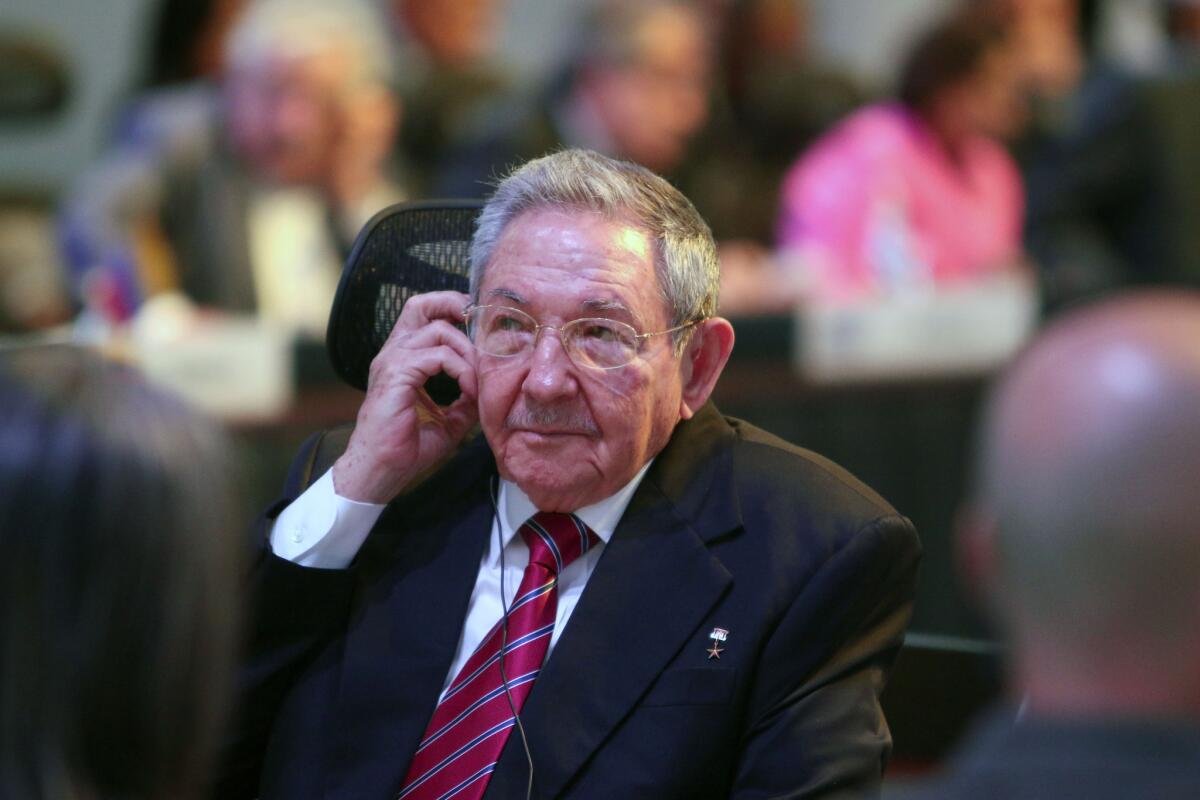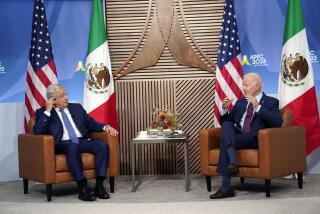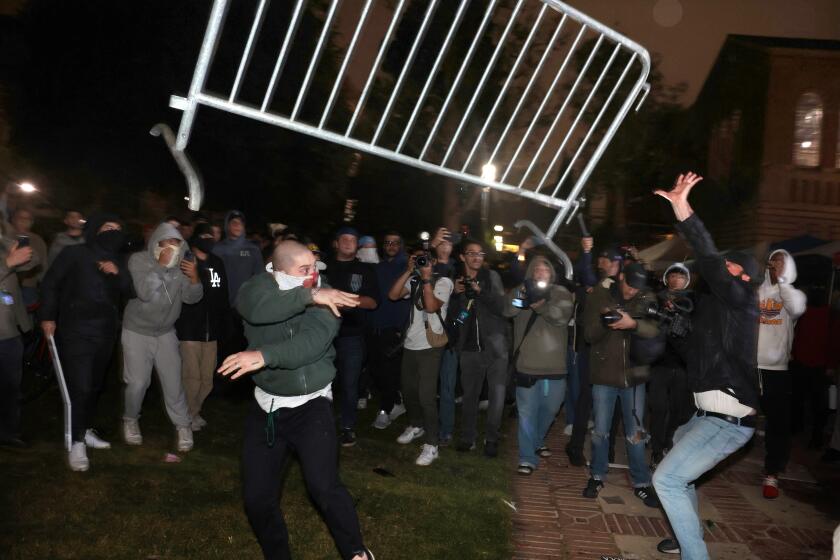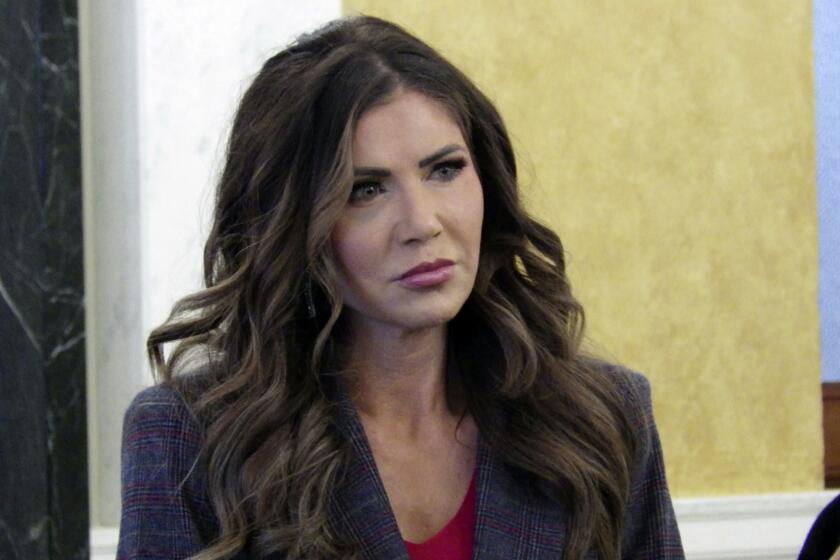Opinion: Castro’s new demands may be more Cuban politics than diplomacy

Cuban President Raul Castro appeared to toss a wrench into normalization talks with his surprise announcement Wednesday that the U.S. government must first give up the military base at Guantanamo Bay, rescind the congressionally mandated trade embargo and compensate Cuba for damages.
Good luck with that.
It’s unclear how firmly Castro will hold to those demands, which he made during a summit of the Community of Latin American and Caribbean States in Costa Rica. The U.S. State Department had no immediate response, but the best way to look at Castro’s proclamation is through a domestic lens. The Castro regime is walking a line between wanting better economic ties with the U.S. while ceding as little as possible at home.
“There is this huge expectation of change and this expectation has been set off by the president’s announcement,” John Caulfield, who led the U.S. Interests Section in Havana until last year, told the Associated Press. The Cuban leaders feel “the constant need to tell their people nothing’s going to change ... the more the Cubans feel obligated to defend the status quo and to say that nothing’s going to change, the more pressure it indicates to me is on them to make these changes, partly on the economic side but I would also say on the political side.”
The underlying motives for normalizing relations remain. From the U.S. standpoint, it’s been a failed Cold War-era policy that continues more out of inertia than as part of a relevant bit of geopolitical gamesmanship. In fact, were it not for the political power of the anti-Castro community in Florida -- which has been waning as part of a generational shift -- there may well have been a move toward rapprochement much earlier than this.
But it’s also in the Cubans’ interest to move ahead. As Joshua Keating noted at Slate last month, Castro is likely to turn over power to a new generation in 2018, a transition that could become rocky if Cuba’s economy remains in its current low-wattage condition. Castro has already pushed an “update” to the communist economy by loosening some private ownership and free-market restrictions, though the changes are a far cry from reforms by other communist governments, such as China and Vietnam.
It’s hard to see Castro suddenly reversing course after he and President Obama announced a thaw in the half-century standoff between the two neighbors. Obama has since loosened some travel and business restrictions, and Castro has released some political prisoners (though he dragged his feet), and high-level delegations from both countries met in Havana recently to discuss how to move forward toward a full restoration of diplomatic ties.
Obama has said the status of Guantanamo Bay military base, which has been under U.S. control for more than a century, was not part of the discussions on normalization, and he has no reason to entertain that conversation now (even if the base has outlived its strategic usefulness). While Obama has already urged Congress to drop the embargo, paying compensation for “damages” suffered over 50 years of bad blood isn’t going to happen.
Castro isn’t likely to intentionally derail the reconciliation over these issues. But tossing up unexpected hurdles won’t help with members of Congress who already distrust him. And it’s Congress that Castro needs to persuade to lift the embargo.
Follow Scott Martelle on Twitter @smartelle.
More to Read
A cure for the common opinion
Get thought-provoking perspectives with our weekly newsletter.
You may occasionally receive promotional content from the Los Angeles Times.







